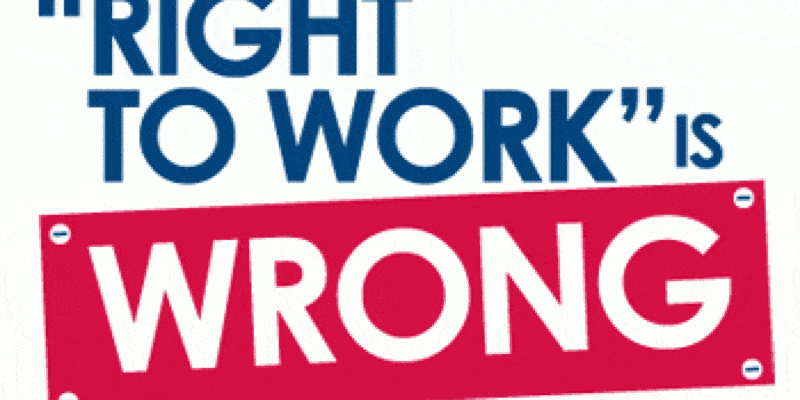“Treat your workers with the dignity and the respect they deserve,” Sanders said of powerful corporations
Published on Monday, April 08, 2019
by Julia Conley, staff writer
Sen. Bernie Sanders on Monday told a gathering of union machinists that as president he would keep states from undermining their rights by pushing for a federal ban on so-called “right-to-work” laws.
Calling the rules “disastrous,” Sanders told the International Association of Machinists that he would call on lawmakers to pass the Workplace Democracy Act, a proposal which he has regularly introduced in Congress since 1992 and which he plans to bring to the Senate floor once again in the coming days.
Under “the most significant labor legislation introduced in very, very long time…we will end once and for all the disastrous right-to-work laws in 28 states,” Sanders said to loud applause.
The senator and 2020 presidential candidate also said the law would keep companies from “ruthlessly exploiting their employees by misclassifying them as independent contractors and [denying] them overtime by calling them supervisors”-both common practices by corporations.
“Workers in the construction industry are particularly vulnerable to wage theft from dishonest contractors who cheat their workers,” said AG Healey. “As Massachusetts undergoes a historic construction boom, my office will continue to fight for exploited workers and ensure they are paid the wages they earn.”
Under right-to-work laws, unions are barred from requiring that all workers contribute dues if they benefit from the union’s contract. The laws have been aggressively pushed by Republican governors and lawmakers in recent years, with proponents claiming they protect workers from being forced to join a union.
“The reality is that federal law already makes it illegal to force someone to join a union,” the AFL-CIO says. “The real purpose of right to work laws is to tilt the balance toward big corporations and further rig the system at the expense of working families. These laws make it harder for working people to form unions and collectively bargain for better wages, benefits, and working conditions.”


